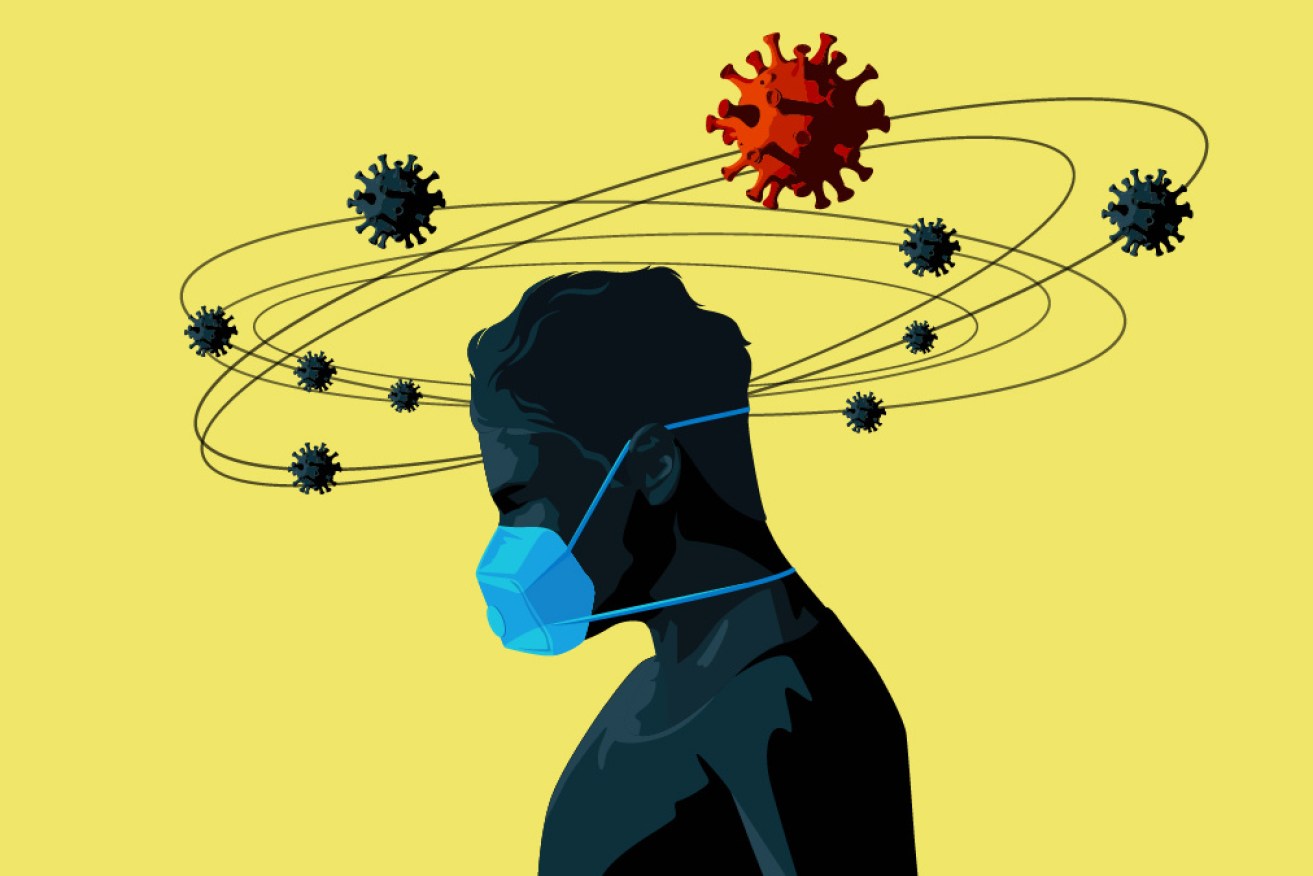Five things to remember as Omicron dominates headlines this week


Remind yourself that what you're feeling right now is normal. Photo: Getty
A new COVID-19 variant emerging before the festive season is the last thing any of us want to think about.
And yet, you may find yourself doom-scrolling through countless posts that only make you feel worse about a developing situation.
If that sounds like you, then here are five things to remember as the Omicron variant dominates headlines this week.
1. We don’t have enough information yet
On Tuesday, the World Health Organisation said the new variant is likely to spread internationally, posing a “very high” risk of global infection.
Dr Meru Sheel, infectious disease epidemiologist and senior research fellow at the Australian National University, told The New Daily that there needs to be more data.
A lot of questions need to be answered first, like how does the Omicron variant affect vaccinated people versus the unvaccinated?
Are more people being hospitalised? What are the death rates?
These are questions that can’t be answered overnight.
“When we look at the population level impact, there’s a six- to eight-week lag between hospitalisation data and death data,” Dr Sheel explained.
“The reason is that the disease progresses quite slowly, and often we’ll see people recovering and then they’ll have this biphasic approach where they might get hospitalised again.
“So it’s just too soon. We haven’t seen enough data.”
To date, no deaths related to the Omicron strain had been reported.
2. High vaccine numbers
More than 85 per cent of people over the age of 16 are fully vaccinated in Australia. That’s a very different situation to where we were last year.
Even in the case that the vaccines won’t be as effective against the Omicron variant, Dr Sheel said we would still see some level of antibodies generated that would be able to kill the virus.
“It may mean – and this isn’t just related to Omicron, it might be for all new variants – that we need variant vaccines, which eventually can be given as a booster,” Dr Sheel explained.
“But you’re not starting from zero, you already have some immunity. So that’s why it’s really important to vaccinate more people.”
3. What you’re feeling right now is normal
Whether you’re frustrated, stressed, confused, scared, drained or all of the above – that’s OK.
Psychologist Chris Cheers recommends looking inward to validate how you’re feeling.
“Know your anxiety is normal because it’s a really normal reaction to this really abnormal situation,” Mr Cheers told The New Daily.
“We wanted this to be over, we wanted this feeling of uncertainty to be gone. But unfortunately I think people are experiencing the reality that while lockdown may be over, the uncertainties around COVID-19 are still here.”
Rather on focusing on the uncertainties, like when this will end, try and ground yourself instead.
4. Consider taking a step back from social media
If you find yourself in a negative spiral after doom-scrolling through news of the Omicron variant, it might be time to reconsider your relationship with social media.
“Often we can focus on what’s written over who has written it,” Mr Cheers said.
It’s normal to want to try and make sense of this experience by scrolling online, but Mr Cheers encouraged people to think about whether or not that’s actually helpful.
If it’s making you upset, is there something you can be doing that might be better for your wellbeing and mental health?
5. Notice how your body is reacting
Mr Cheers explained our bodies are going to react to the Omicron news by feeling threatened.
“You’re going to feel triggered because we’ve been in this situation before,” he said.
“When that happens, I would invite people to think about ways they can complete their stress cycle.”
Our body has a natural threat system, which means when we perceive a threat in our environment our body will react by going into a fight, flight or freeze response.
“What that means is our body wants to normally complete a cycle of seeing the threat, running away from it and getting to safety. Then you can calm down. That’s the cycle,” he explained.
But if the threat is not something you can fight or run away from, the body is trapped in a stress cycle.
As we can’t exactly run away from COVID-19, Mr Cheers said it might be useful to trick our bodies into thinking you’ve reached safety.
“So if you’re feeling anxious or stressed, it can help to do vigorous exercise because your body will then complete the stress cycle.”
If you feel like you need to escape, try going on a walk.
And if you’re experiencing the freeze response, where you feel hopeless or apathetic, it can be helpful to try a mindfulness app, journalling or yoga.








